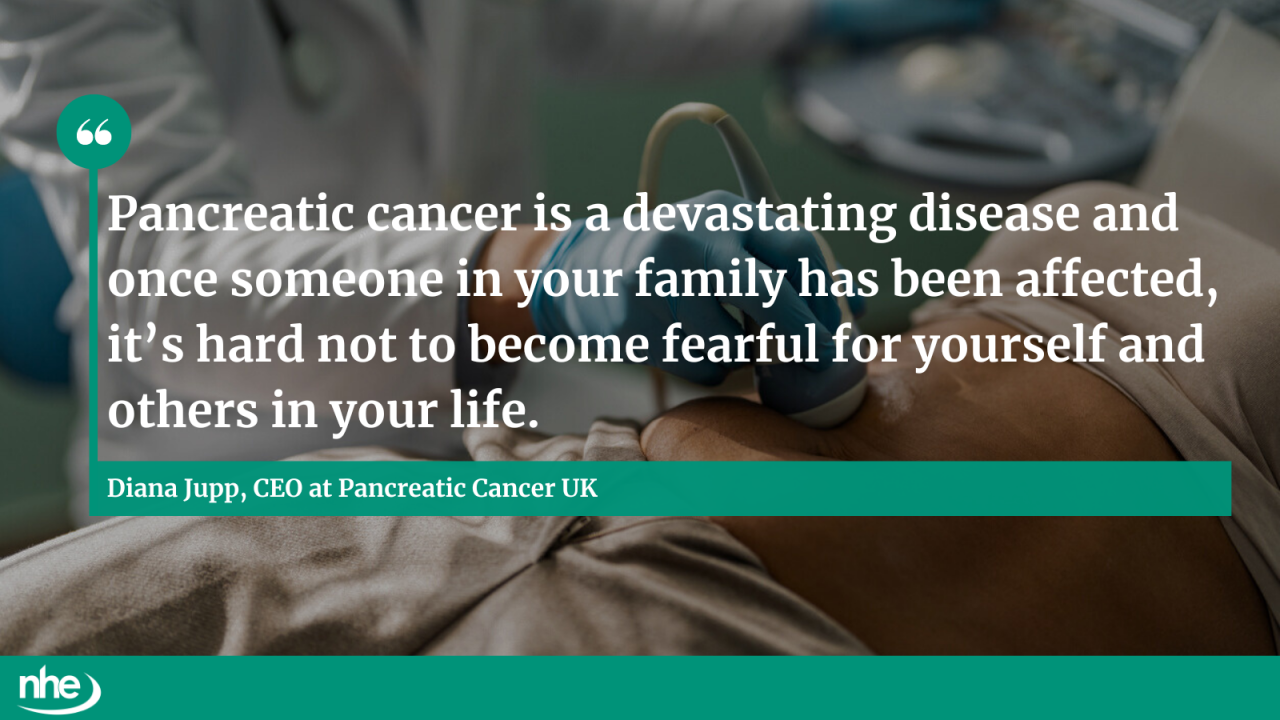Pancreatic Cancer UK has launched a new risk checker tool in partnership with NHS England (NHSE), as part of the latest bid to enable earlier diagnosis.
The tool is available to those who have lost a family member to pancreatic cancer, so they can assess their risk of inheriting the disease. One in 10 cases overall are inherited.
NHSE invested £100k into the Family History Checker as the health system looks to raise awareness of inherited risk and signpost eligible people to the surveillance programme – the European Registry of Hereditary Pancreatitis and Familial Pancreatic Cancer (EUROPAC).
A person would qualify as having inherited risk if they have:
- more than one relative with pancreatic cancer on the same side of the family;
- a family with a genetic condition linked to pancreatic cancer and at least one case of pancreatic cancer in the family; and
- been diagnosed with hereditary pancreatitis.
EUROPAC
A new poll conducted on behalf of Pancreatic Cancer UK suggests that knowledge of inherited risk could be higher among primary care professionals. Out of 1,000 GPs, two-thirds (66%) said they knew pancreatic cancer carries hereditary risk but only a tenth (10%) knew where to refer a person who has extra risk for further surveillance.
EUROPAC, which is funded by Pancreatic Cancer UK, started in 1997 and maintains a list of people with a family history of pancreatic cancer, as well as people who have been diagnosed with hereditary pancreatitis.
Those referred to EUROPAC will then be reviewed to determine who should be invited for annual monitoring, so any changes to the pancreas can be spotted as early as possible.
Early diagnosis
Around 10,500 people are diagnosed with pancreatic cancer in the UK each year, but four in five (80%) are not caught until the later stages when a cure is not realistic.

This is because it is difficult to detect at an early stage due to the limited range of diagnostic tests available and because its symptoms are common in other conditions – i.e., back and stomach pain or indigestion and unexpected weight loss.
As a result, pancreatic cancer has one of the lowest survival rates of all common cancers, with more than half of people dying within three months of diagnosis.
Proud support
“Pancreatic cancer is a devastating disease and once someone in your family has been affected, it’s hard not to become fearful for yourself and others in your life,” said Diana Jupp, CEO at Pancreatic Cancer UK.
“We are so proud to be supported by NHS England on this project, which will help alleviate anxiety around inherited risk of the disease and identify the people who most need regular monitoring.”
NHSE’s national clinical cancer director, Professor Peter Johnson, added: “This new Family History Checker is a great tool for families where someone has had pancreatic cancer and will help the NHS to identify and support people at risk from it.”
Image credit: iStock



















